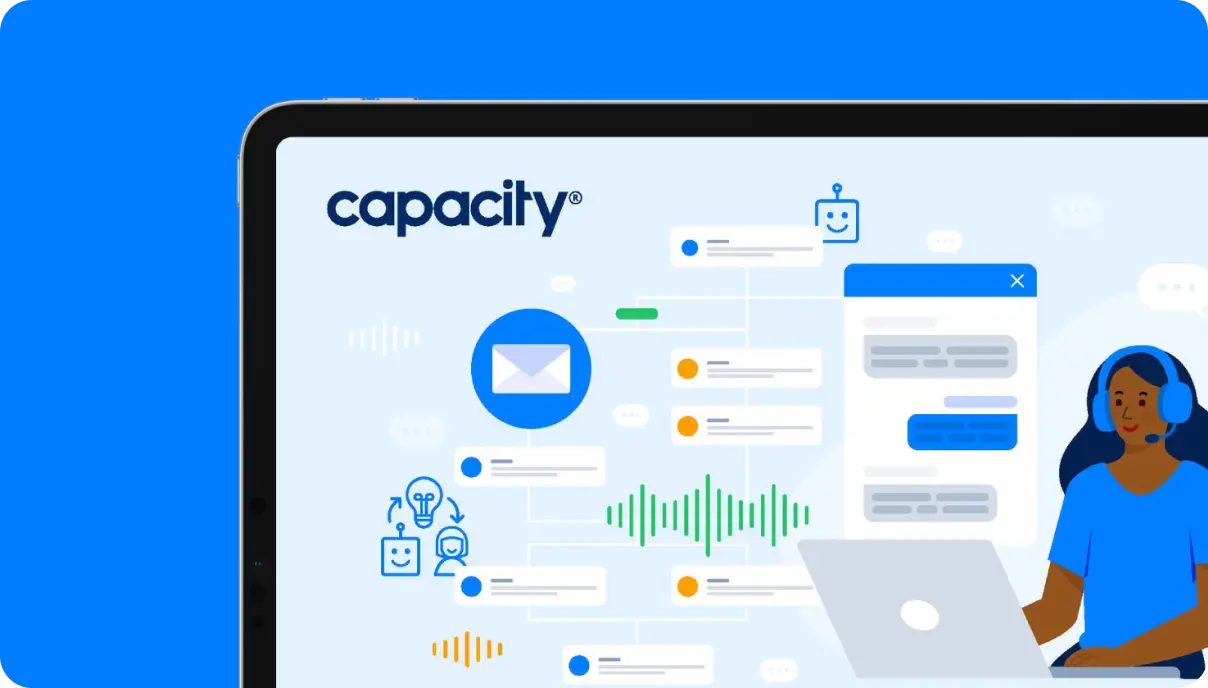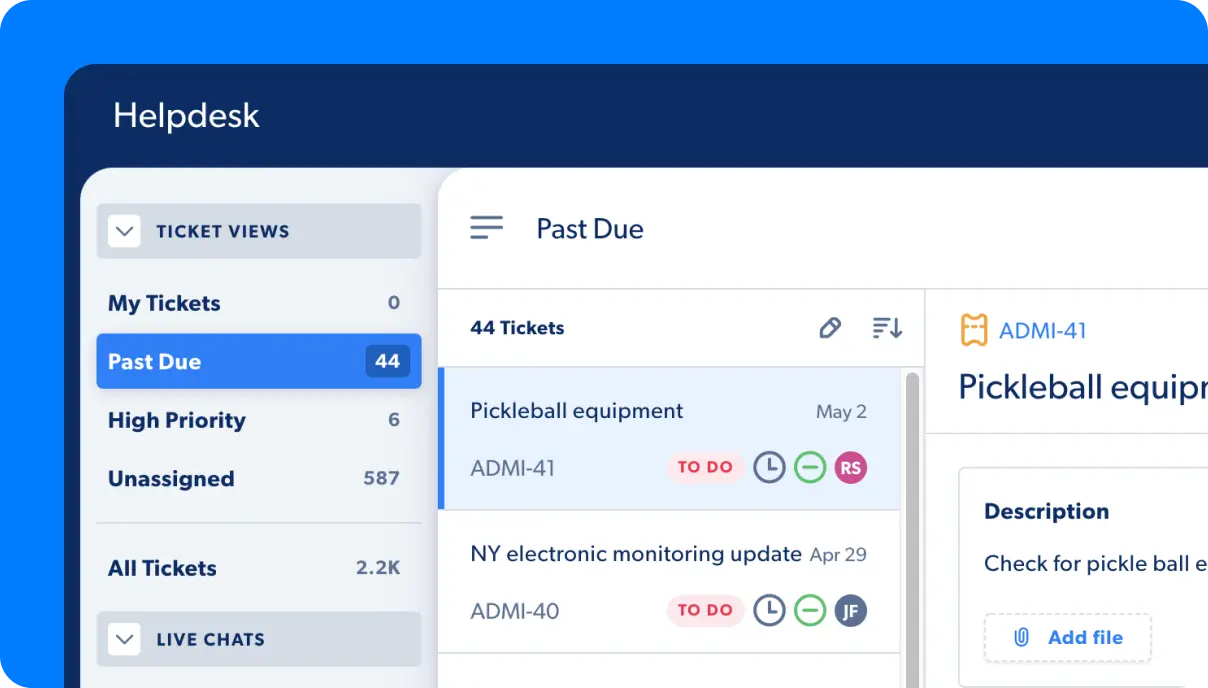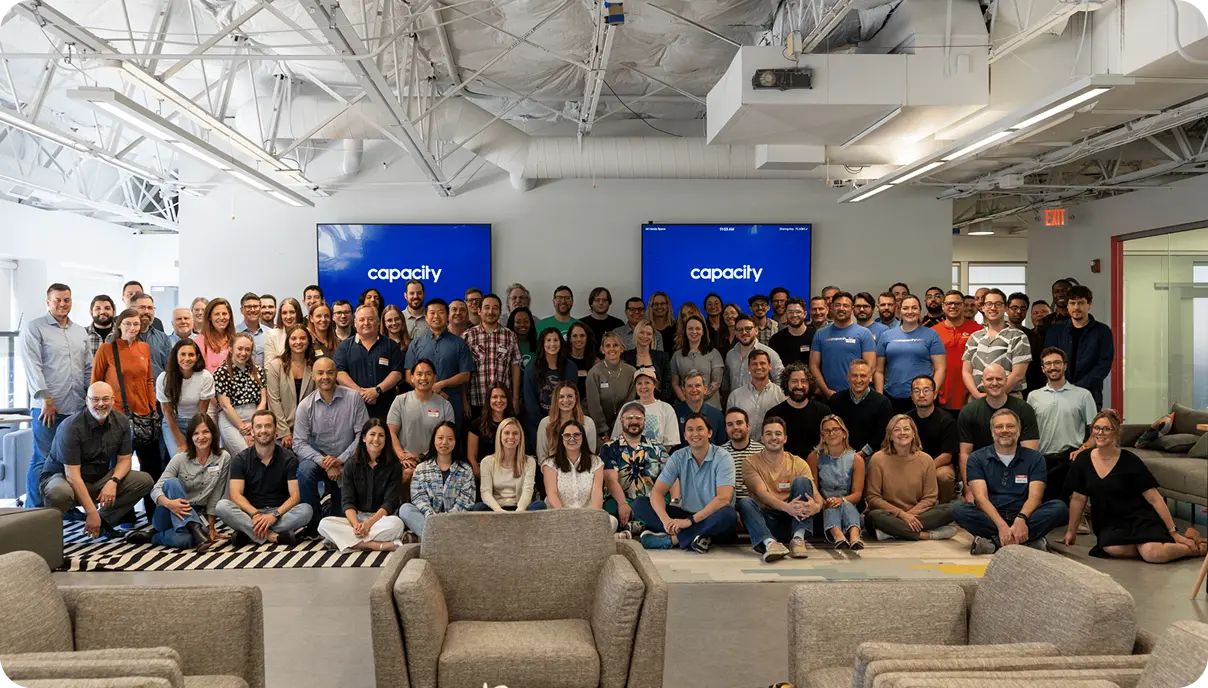Imagine being able to attract, engage, and retain more college students at your school—and lowering employee costs simultaneously. If this premise sounds appealing but too good to be true, learn how some universities have already done this with the help of Capacity, an AI-powered support automation platform. In a recent webinar, Forging Deeper Connections with Students During Uncertain Times, Capacity explained how its platform benefits higher education. You can now download the webinar replay and watch the event.
How can an AI-powered support automation platform help colleges?
If you’re not familiar with Capacity, it might surprise you to learn just how much a platform powered by artificial intelligence can help with some of the most important tasks that go into running a college. The Capacity support automation platform will seamlessly connect your whole tech stack to quickly and accurately answer questions from students, automate repetitive support tasks, and provide alerts to teams to remind them to follow up on student concerns. This kind of automated assistance leaves school administration and faculty with more time to give support to students where they need it most.
If you’re intrigued by these capabilities, download Capacity’s recent webinar so you can learn more. You will explore ways your university will benefit from 24/7 student support, automated workflows, and digital human life coaches. If the idea of saving time and money while better attracting and engaging students appeals to you, this webinar will tell you exactly how Capacity can help your university.
Who spoke at the webinar?
Capacity’s webinar featured two speakers:
- David Karandish, Founder and CEO of Capacity. Before creating Capacity, David was the CEO of Answers Corp, which he and his business partner, Chris Sims, started in 2006. They then sold it to a private equity company in 2014 for more than $900 million. Currently, David sits on the board of three different organizations that successfully blend education with technology in different ways: Varsity Tutors, Create a Loop, and Prepare.ai.
- Brian Merkel, Director of Enterprise Learning Technology at Maryville University of St. Louis. Brian is also the Learning Management System (Canvas) administrator and the lead on projects leveraging Capacity to improve student service and success both inside and outside the classroom. Brian has been a web developer and systems architect for the past 20 years. He has a BA in Interactive Multimedia with a concentration in programming and an MA in Information Technology Management.
During the webinar, David and Brian—along with Dr. Mark Lombardi, PhD., President of Maryville University—discussed Maryville’s growth and success after implementing Capacity’s support automation platform. Attendees discovered how Capacity connects to Maryville’s entire tech stack to answer questions, automate repetitive tasks, and build solutions to any student challenge. The webinar also explained the implementation process, how Capacity life and student success coaches work, and what’s on the horizon for future innovation in the industry. You will also discover how Capacity comes with features like a knowledge base and chatbot functionality.
Download and watch Speed to ROI: Discover the Fastest Route to Student Success now!
What happened in the webinar?
Here are some questions attendees asked during the webinar:
- How has Capacity enhanced student connections?
- Have students said they feel more engaged with or connected to campus after implementing this service?
- What type of training do you provide to student success coaches and life coaches?
- How many students does each life coach serve?
- Is a life coach similar to a student success coach?
- Is there a limit on how many sessions students may have?
- What type of advice would you offer to organizations that are just getting started with the cloud?
- Do the life coaches have specific training and/or certification in life coaching?
- How did you enable your team inside the organization to work together to support this initiative?
- Did you form a cloud center of excellence across departments?
- Where are you running your Canvas application? On-premise? In the cloud? What services are you using to run Canvas?








































